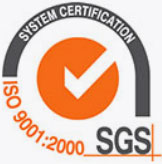Product
Knowledge
Single-sided aluminum profile often referred to as a single-channel or single-slot aluminum profile, is a type of extruded aluminum component with a specific cross-sectional shape. It features a single groove or slot along one side, which can be used for various purposes such as fastening, connecting, or securing other components or accessories. These profiles are commonly used in construction, manufacturing, and various industries for creating modular structures and systems.
Key characteristics of single-sided aluminum profiles include:
Profile Shape: These profiles typically have a T-slot or a single open groove along one side, allowing for attachments or connections with nuts, bolts, or other accessories.
Versatility: Single-sided aluminum profiles are highly versatile and can be used to build a wide range of structures and systems, including frames, enclosures, workstations, conveyor systems, and more.
Extruded Aluminum: They are made by extruding aluminum alloy materials, which provides a balance between strength and weight, making them durable and lightweight.
Accessories: To work with single-sided aluminum profiles effectively, a variety of accessories are available, such as T-nuts, bolts, brackets, connectors, and end caps, which fit into the groove to secure and connect other components.
Easy Assembly: Assembling structures with these profiles is relatively simple and doesn't typically require welding or specialized tools. Components can be easily connected by sliding them into the profile's groove and securing them with nuts and bolts.
Customizable Lengths: Single-sided aluminum profiles are often available in standard lengths, but they can also be cut to custom lengths to fit specific project requirements.
Common applications of single-sided aluminum profiles include constructing industrial workstations, shelving systems, machine frames, enclosures, material handling equipment, automation systems, and more. They offer the advantage of modularity, making it easy to modify or expand structures as needed.
These profiles are used in a wide range of industries, including manufacturing, automation, robotics, electronics, and even in DIY projects, where the need for lightweight and robust framing systems is evident.

 中文简体
中文简体
 English
English
 Español
Español
 Deutsch
Deutsch






























